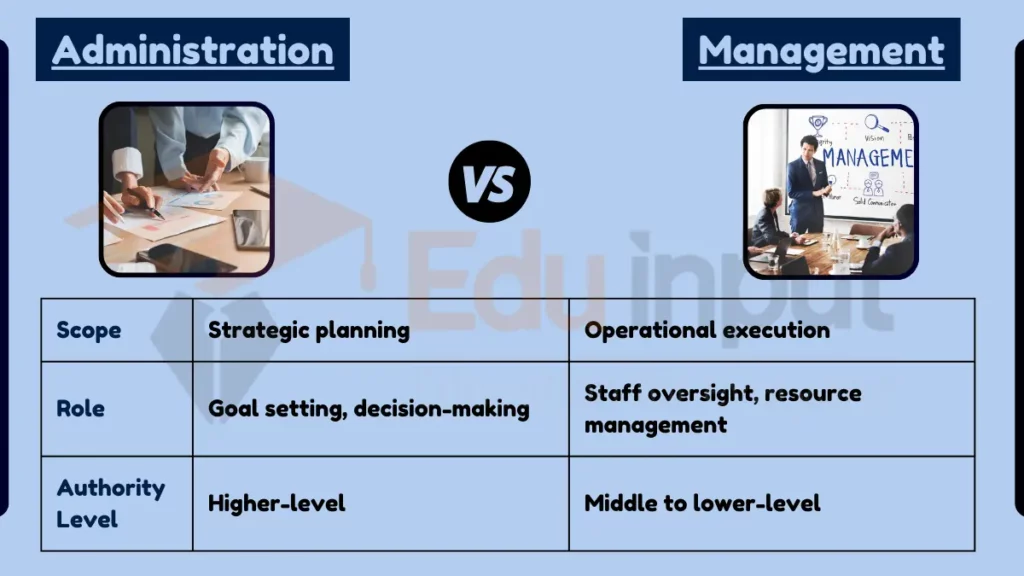Difference Between Administration and Management
Key Difference
Administration and management are key functions in any organization but differ in their primary focus and scope of activities. Administration typically refers to the top-level planning and decision-making activities that set the course for the organization. Management, however, deals with the day-to-day operations and execution of the organization’s policies and strategies.

Comparative Analysis
- Scope and Focus:
- Administration: Broad, strategic planning and policy-making.
- Management: Operational, implementing, and executing plans.
- Role in Organization:
- Administration: Sets goals, and makes critical decisions.
- Management: Oversees staff, and manages resources to meet goals.
- Level of Authority:
- Administration: Higher-level, often includes board members, directors.
- Management: Middle to lower-level, includes managers, supervisors.
- Skill Set and Perspective:
- Administration: Requires a visionary perspective, leadership skills.
- Management: Needs organizational, problem-solving skills.
- Impact on Organization:
- Administration: Influences long-term success, direction.
- Management: Affects daily functioning, short-term objectives.
Table Summary
| Feature | Administration | Management |
|---|---|---|
| Scope | Strategic planning | Operational execution |
| Role | Goal setting, decision-making | Staff oversight, resource management |
| Authority Level | Higher-level | Middle to lower-level |
| Skills | Visionary, leadership | Organizational, problem-solving |
| Impact | Long-term success | Daily functioning |
While administration and management are integral to organizational success, they play distinct roles. Administration focuses on strategic direction and policymaking, while management is concerned with implementing these strategies and overseeing daily operations.



Leave a Reply